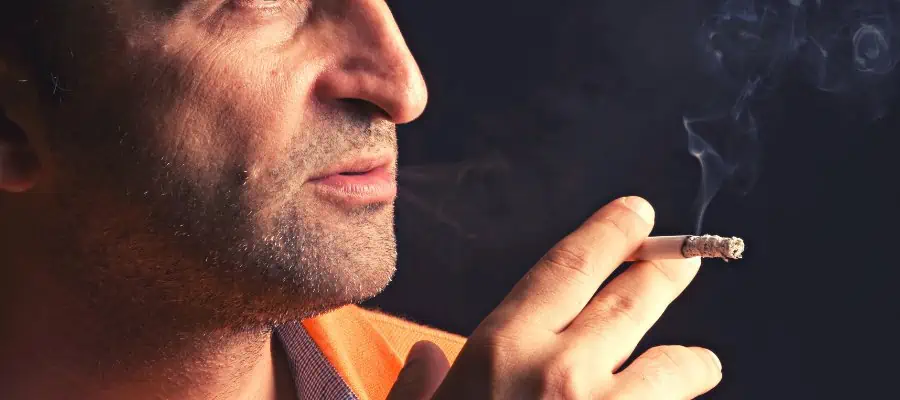The rigorous demands of boxing can be taxing on even the most finely-tuned athletes; introducing smoking into this equation might be akin to trying to run a car engine without air. The smoke from cigarettes, which contains various harmful chemicals, is notorious for its adverse effects on the lungs. Now, imagine a boxer whose lungs are compromised — where does that leave their performance in the ring?
Experts agree that smoking can significantly impair lung function and cardiovascular health, crucial aspects for any athlete, especially for boxers.
While debates swirl around the use of marijuana and its potential relaxing or pain-relieving benefits after a tough match, the consensus remains that anything that could impair lung capacity is a counterproductive choice for boxers. Whether it’s traditional tobacco or marijuana, the introduction of smoke into a boxer’s lungs is a contested topic — filled with personal anecdotes of relaxation against stern warnings from medical professionals.
Health and Physical Impact of Smoking on Boxers

The decision to smoke can drastically undermine a boxer’s health and physical capacity. Smoking hampers key aspects of performance that are critical for success in the ring.
Effects on Lung Capacity and Conditioning
Smoking is known to reduce lung capacity and impair the lungs’ ability to absorb oxygen. For boxers, whose sport is intensely aerobic, having optimal lung function is essential for maintaining conditioning and endurance during training and matches. For example, the tar in cigarettes can damage air sacs in the lungs, leading to reduced lung function.
Risk of Injury and Recovery Time
Athletes who smoke may face longer recovery times from injuries. The presence of carbon monoxide in tobacco smoke can reduce oxygen levels in the blood, slowing down the healing process. Muscles and tissues require oxygen-rich blood for repair, and diminished blood flow can result in prolonged muscle spasms and delayed recovery.
Addiction and Substance Regulations in Sports
Smoking and the use of tobacco products can lead to addiction, which complicates an athlete’s ability to adhere to substance regulations in sports. In some states like California and Nevada, where professional boxing is prominent, regulations around substances such as marijuana are changing. Notably, athletes like boxers may use medical marijuana, but they still need to navigate the fine line between consumption and compliance with athletic commissions.
Lifestyle and Psychological Aspects

In the competitive world of boxing, lifestyle choices, and psychological well-being play crucial roles in a boxer’s success. These factors can significantly influence stress management and how the fighter is perceived culturally.
Stress Management and Alternatives to Smoking
Boxers often face immense stress and pressure, both in preparation for fights and during competitions. While some may turn to smoking to alleviate stress, this habit can be detrimental to their performance and health. Instead, boxers are advised to explore healthier stress management techniques.
Engaging in meditation, deep-breathing exercises, and yoga can serve as beneficial alternatives. Moreover, the use of cannabis or medical marijuana is a controversial topic, with some regions allowing it for therapeutic purposes, which can affect stress levels and appetite, but it remains a complex issue within sports regulations.
Prominent Examples and Cultural Perception
Prominent figures such as Ricardo Mayorga and Mike Tyson have been open about their smoking habits, which has shaped the cultural perception of boxers and smoking. Mike Tyson, for instance, has transitioned into an entrepreneur in the cannabis industry, reflecting a shift in attitudes towards marijuana in the United States. Learn more about boxers who were heavy smokers.
Meanwhile, promoters like Bob Arum have noted the potential for marijuana to become more accepted in the boxing community. However, professional boxers must navigate the regulations of their sport, which often penalize the use of such substances. The viewpoint on smoking in professional sports, including MMA and boxing, continues to evolve as cultural attitudes and laws shift.
If this article was helpful to you, don’t forget to add it to your Pinterest board.
Recent Posts
What is Manachai's Fighting Style? Unveiling Muay Thai Mastery
Manachai, a celebrated figure in the Muay Thai world, has captivated audiences with his exemplary martial prowess. Hailing from the heartlands of Thailand, his name is synonymous with the art of...
What Was Chamuekpet Hapalang's Fighting Style? Unveiling Techniques
Chamuekpet Hapalang was a renowned figure in the world of Muay Thai (record 200-48-2), embodying a fusion of Muay Bouk and Muay Khao styles. Originating from Thailand, the art of Muay Thai is known...

